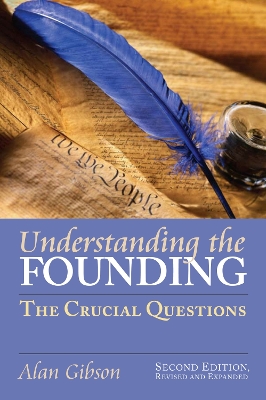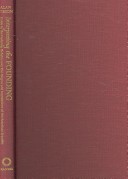American Political Thought
2 total works
In the original edition, which was built upon his previous work in Interpreting the Founding, Gibson addressed four key questions: Were the Framers motivated by their economic interests? How democratic was the Framers' Constitution? Should we interpret the Founding using philosophical or strictly historical approaches? What traditions of political thought were most important to the Framers? He focused especially on the preconceptions that scholars brought to these questions, explored the deepest sources of scholars' disagreements over them, and suggested new and thoughtful lines of interpretation and inquiry. His incisive analysis brought clarity to the complex and sprawling debates and shed new light on the institutional and intellectual foundations of the American political system.
Gibson has now added a path-breaking new chapter entitled "How Could They Have Done That? Founding Scholarship and the Question of Moral Responsibility," which reprises and critiques on of the most important and vexing contemporary debates on the American founding. The new chapter focuses on how the men who fought a revolution in the name of liberty and declared to the world that "all men are created equal" could have supported the institution of slavery and even owned slaves themselves, accepted the legal and social subordination of women, and been responsible for Indian removal and genocide against Native Americans. Efforts to criticize or defend the Founders on these issues now constitute a daunting body of scholarship addressing what David Brion Davis has called the "dilemmas of slaveholding revolutionaries." Gibson's astute and fair-minded analysis of this scholarship offers keen insights into how we might move toward more mature and responsible evaluations of the Founders.
The book features extended discussions of pioneering works by leading scholars of the Founding - including Louis Hartz, Bernard Bailyn, Gordon Wood, and Garry Wills - that best exemplify different schools of interpretation. Gibson focuses on six approaches that have dominated the modern study of the Founding: Progressive, Lockean/liberal, Republican, Scottish Enlightenment, multicultural, and multiple traditions approaches. For each approach, he traces its fundamental assumptions, revealing deeper ideological and methodological differences between schools of thought that, on the surface, seem to differ only about the interpretation of historical facts. While previous accounts have treated the study of the Founding as the sequential replacement of one paradigm by another, Gibson argues that all of these interpretations survive as alternative and still viable approaches.
By examining the strengths and weaknesses of each approach and showing how each has simultaneously illuminated and masked core truths about the American Founding, he renders a balanced account of the current debate over the origins and foundations of the American republic and offers solid footing on the path to understanding the vast literature devoted to this important subject.

